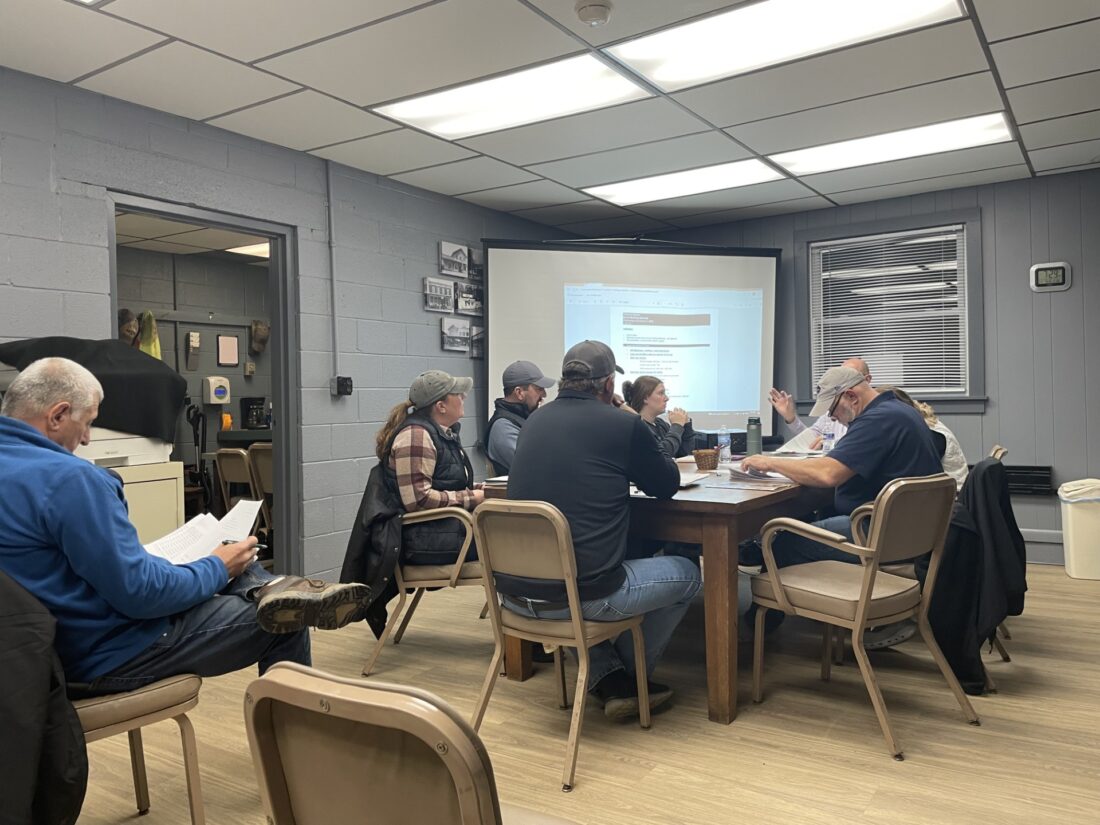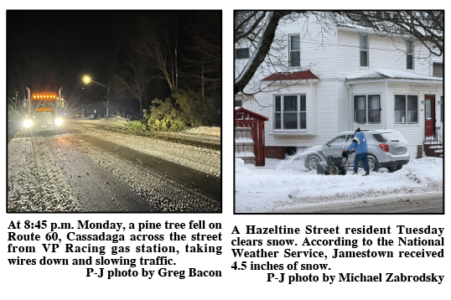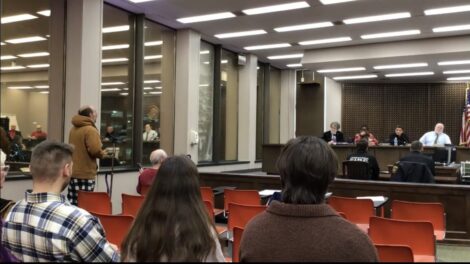Clymer Airs Concerns Over Electric Home Mandate

Building and Code Enforcement Officer, Jeff Messenger, talks with the town of Clymer on one of the solar projects and a state mandate. P-J photo by Sara Holthouse
CLYMER – Clymer officials are airing concerns with the state’s all-electric mandate for new home construction as enforcement deadlines loom.
They weren’t the only ones to do so. And, as of Wednesday, the Jan. 1 enforcement deadline has been delayed by the state. New York will delay its statewide mandate to build all-electric buildings, which was scheduled to go into effect on Jan. 1, 2026, while a lawsuit filed by gas and construction trade groups is heard by the Second Circuit U.S. Court of Appeals. The All-Electric Buildings Act was passed during state budget talks in 2023 and would ban new gas hookups in new buildings under seven stories starting Jan. 1. The mandate would apply to all other buildings constructed after Jan. 1, 2029.
Jeff Messenger, Clymer building and code enforcement officer, discussed the issue recently with Clymer Town Board members. All new houses built starting in 2026 are required to be all electric instead of using natural gas, which was discussed at a recent code conference he attended.
“They hear that it’s not such a solid law yet, but I also know that if the state is already incorporating it into their books it’s a done deal,” Messenger said. “They’re not going to waste that.”
The law can start to be enforced now, after Oct. 31 through Dec. 31, but Messenger said after that enforcement will be required. A question was asked as to what the Amish community would have to do, and it was noted that it can be done at the discretion of the code enforcement officer, but then it was wondered if that would come back on Messenger if he did not enforce it.
Messenger said everything is up in the air right now, noting that the Amish community currently uses propane but are not plugged in to using natural gas, saying that he does not know how it all is going to work. It was also discussed that a house has to have a source of heat to be issued a certificate of occupancy, and that he understands wood stoves count for that as well.
“I’m not even talking about the Amish because I hold them to the same standards that I do the English, if you will, but I’m concerned about the English,” Messenger said. “I mean, who wants to put all electric everything in your house, then you are completely at the mercy of the grid. That doesn’t seem right at all.”
Brian Willink, town supervisor, said there is still a lot of grey area with this law with nothing set in stone yet. The certificate of occupancy for the Amish community was discussed a little bit more, and final inspections looking for safety items and everything, and the fact that building codes and permits can be withdrawn if issued incorrectly.
Everything with the all-electric mandate is still being weeded through, and it was also brought up that there may be some sort of exemption that in areas with heavy snow there is an allowance for a backup of whatever the person chooses.
Willink also noted that he had heard of some meetings and press from people pushing the governor to not move forward with it. It was also questioned as to whether this will be something the grid will be able to maintain, and Messenger added that he has also been telling people to come to him for building permits now, as they can be extended for years.
Messenger also discussed the solar project to be set on Upper Road. Looking at the solar project, Willink said the project is working on moving forward, but is now in need of the building permit for the next step.
“So Jeff figured out what it would be for their building permit based on the square acreage of the area, and that was a big number,” Willink said.
Messenger said it would be around $68,000 just for the building permit. In conversation with the company doing the project, he added that he was told by them that towns typically charge around $10,400 but was not sure if that was something that was just the company’s standard. If the town was to charge them the amount they would charge any other business at 10 cents per square foot, the amount would reach the $68,000 amount. He added another possible amount to charge would be $17,000 as that would be the charge for the amount of acreage being taken up by the solar panels themselves. The overall project itself will be taking up 15.7 acres that will not be able to be used for anything else, and Messenger said it would be the same as somebody building a big building there and leaving a hole in the center, in that he would still charge for the whole square footage. He said he is still waiting on the town’s attorney and the town to tell him what they would like to do.
Willink said he has talked with the town’s attorney, who told him that towns charge a little differently for these purposes, and the attorney was working to figure out if there was a standard and they had not come up with anything concrete yet. He also noted that the developing company that was working on the project is no longer RIC, but is now Generate Capital.
“So anyway, we’re kind of in a holding pattern right now for the building permit and we’ll come up with kind of something, whether it’s the $68,000 or $17,000 or something in that vicinity or we’ll negotiate something with the developer,” Willink said.
Besides these two big discussion items, Messenger also briefly addressed agricultural builds, permits, accessibility codes, and the possibility for the town to look into a law to not allow big box stores to be built in the town.





